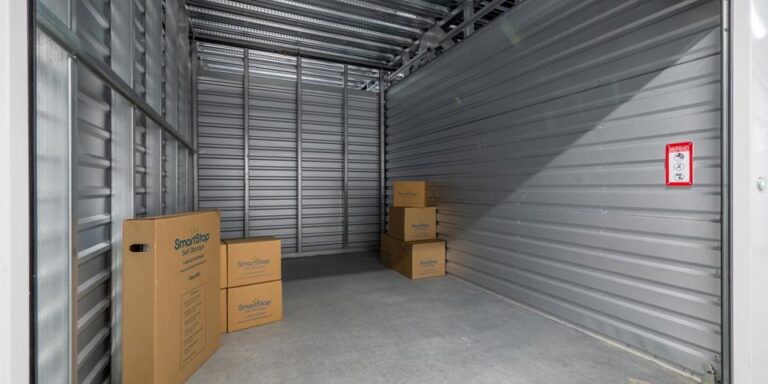In today’s fast-paced world, where space is at a premium, self-storage units have emerged as a practical solution for individuals and businesses. Whether you’re downsizing, decluttering, or needing a temporary home for your belongings, selecting a suitable self-storage unit is crucial. This guide aims to navigate the process, ensuring you make an informed decision tailored to your specific storage needs.
Assess Your Storage Needs
Size Matters: Start by evaluating how much space you need. Self-storage units come in a range of sizes, from small lockers to large rooms that can accommodate the contents of a whole house. Inventory your items and consider how much room they will require. Remember, choosing a unit that’s too small will leave you with a cramped space, while a unit that’s too-large means paying for space you don’t use.
Duration of Storage: Consider how long you plan to use the storage unit. Short-term renters might have different priorities, like convenience and location, compared to long-term users, who prioritize cost and security more.
Access Frequency: How often do you need to access your stored items? If regular access is necessary, look for facilities that offer 24/7 access or extended operating hours.
Location and Accessibility
Convenience: The location of your storage unit is essential, especially if you’ll be accessing it frequently. A facility near your home or workplace can save you time and transportation costs. However, remember that units in metropolitan areas may come at a premium compared to those in more remote locations.
Accessibility: Apart from the geographical location, consider the facility’s layout. Is it easy to navigate? Are loading docks, elevators, or carts available to help you move your items?
Security Measures
Surveillance and Monitoring: Opt for facilities with robust security measures, including 24/7 CCTV surveillance, gated access, and individual alarms for each unit. Knowing your belongings are protected, a well-secured facility can give you peace of mind.
Locks and Keys: While most facilities provide some locking mechanism, investing in a high-quality, tamper-proof lock for your unit adds an extra layer of security.
Climate Control
Climate-controlled units are necessary for sensitive items like electronics, antiques, or essential documents. These units maintain a consistent temperature and humidity level, protecting your belongings from damage due to extreme temperatures or moisture.
Insurance and Contracts
Insurance Coverage: Check if your home insurance policy covers items stored off-site. If not, consider purchasing insurance offered by the storage facility to protect your belongings against unforeseen events like fires or floods.
Understanding the Contract: Read the rental agreement carefully before signing. Pay attention to the terms regarding payment, late fees, and contract termination. It’s essential to understand your rights and responsibilities as a tenant Magazine Valley.
Reviews and Recommendations
Before making a final decision, research online reviews and ask for recommendations from friends or family. First-hand experiences can provide valuable insights into a facility’s customer service, cleanliness, and reliability.
Cost
While cost should not be the deciding factor, it’s undoubtedly an important consideration. Compare prices and check for any hidden fees or required deposits. Some facilities offer discounts for long-term commitments or upfront payments, which can lead to savings in the long run.
Conclusion
Choosing a suitable self-storage unit requires careful consideration of various factors, including size, location, security, climate control, and cost. By taking the time to assess your needs and research your options, you can find a storage solution that meets your requirements and provides peace of mind. Remember, the ideal storage unit perfectly balances affordability, convenience, and security.
Also, Read The Following: Black Hole Dev.


